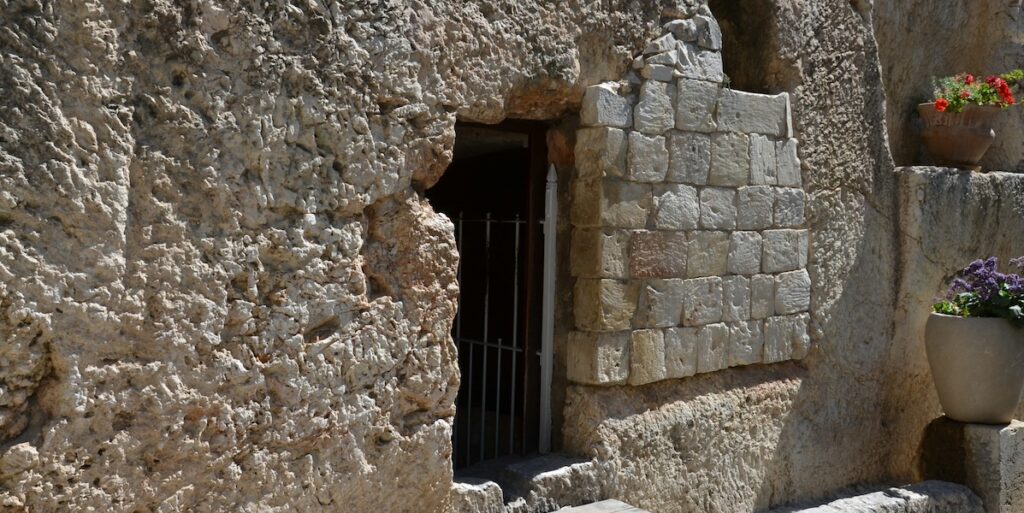Jesus has some pretty hard sayings.
I watched a YouTube video yesterday from an atheist. She said that we often think of Jesus as a peace-loving hippie who had an ethic of love. But then she went on to quote some of Jesus’ harshest sayings.
Indeed, Jesus gets pretty harsh.
She quoted Matthew 10:37-39, where Jesus says:
Whoever loves father or mother more than me is not worthy of me; and whoever loves son or daughter more than me is not worthy of me; and whoever does not take up the cross and follow me is not worthy of me. Those who find their life will lose it, and those who lose their life for my sake will find it.
How about that for some good Christian family values?
But I think we might be able to identify with Jesus’ hard saying more than we think.
Jesus used this kind of harsh language because he was filled with a sense of urgency. For Jesus, the Kingdom of God was at hand and the time was now for people to live in the Kingdom of God.
I know many of us don’t like “Kingdom” language. “Kin-dom” is often used. I like Kindom as a reminder that we are all connected, but Jesus deliberately used “Kingdom” language for a purpose. And that purpose was to subvert the oppression of the Roman Empire and the Kingdom of Herod.
The Roman Empire ruled the known world. King Herod, and then his sons, ruled the land of Judea. Rome and Herod ruled together and had one primary way of keeping their power – through violence.
Rome instituted the “Pax Romana.” In English, that translates to, “Roman Peace.” But Rome forced peace onto its subjects through the sword. If you defied Rome, you would be killed by the sword if you were a Roman citizen, or worse, by the cross if you were not a Roman citizen.
King Herod was ruthless. You might remember that in Matthew’s version of the Christmas story, King Herod feared the baby Jesus so he killed all the baby boys in and around Bethlehem after Jesus’ birth. Historians tell us that this event likely didn’t happen. There is no historical record of it happening. Even so, Herod certainly could have killed the baby boys of Bethlehem. Herod thought some of his own children were a threat to his power, so he killed some of his own children.
The people of Judea had many different responses to the Roman occupation and to Herod’s rule. There were primarily four responses. First, some thought they should work with their oppressors. Maybe they could gain power by playing by the rule of Rome. Second, some thought they should follow the laws of their religion and then God would send a Messiah to save them. Third, others believed they should be vigilantes by hiding swords in their clothes and killing Roman soldiers and Roman sympathizers. And fourth, some thought those three options were corrupt and the only hope was to live alone in the desert in monastic communities.
It is likely that Jesus picked the second option. Personally, I vote for living in desert communities. Who is with me?!? Ha!
Jesus says in Matthew 5 that he did not come to abolish the law, but to fulfill it. But how did Jesus fulfill the law?
Jesus fulfilled the law of love. In fact, he said all of the law and the prophets hang on the command to love. But this is not a wishy-washy love that’s based on positive feelings for another. This is a love that embraces even those we call our enemies.
So what does this have to do with the difficult saying of Jesus that I quoted above?
Many in our families will choose to not follow Jesus’ radical love. Just like in Jesus’ day, many in our day would rather work with oppressive political regimes in order to try to benefit from them at the expense of others. Some think that violence against and scapegoating of minority groups will solve our problems. While others fall into a nihilistic trap of giving up.
Many families have experienced the stress of these dynamics during the last few years and some have split apart.
This matters because Jesus chose the path of following the law, but not just any law. In the face of Roman oppression and Herod’s violence, Jesus fulfilled the law of nonviolent love.
The Kingdom of God that Jesus brought is not one of power and violence, but one of self-giving love. It would rather absorb violence than inflict it upon another. That’s what Jesus meant by, “Whoever does not take up the cross and follow me is not worthy of me.”
For Jesus and the early Christians, the cross was the ultimate symbol of nonviolent love. It was a sign of self-giving love. The cross was one of the most effective and painful torture devices ever created. But Jesus and the early Christians turned it into a symbol of God’s radical nonviolent love for you and for me and for all people.





